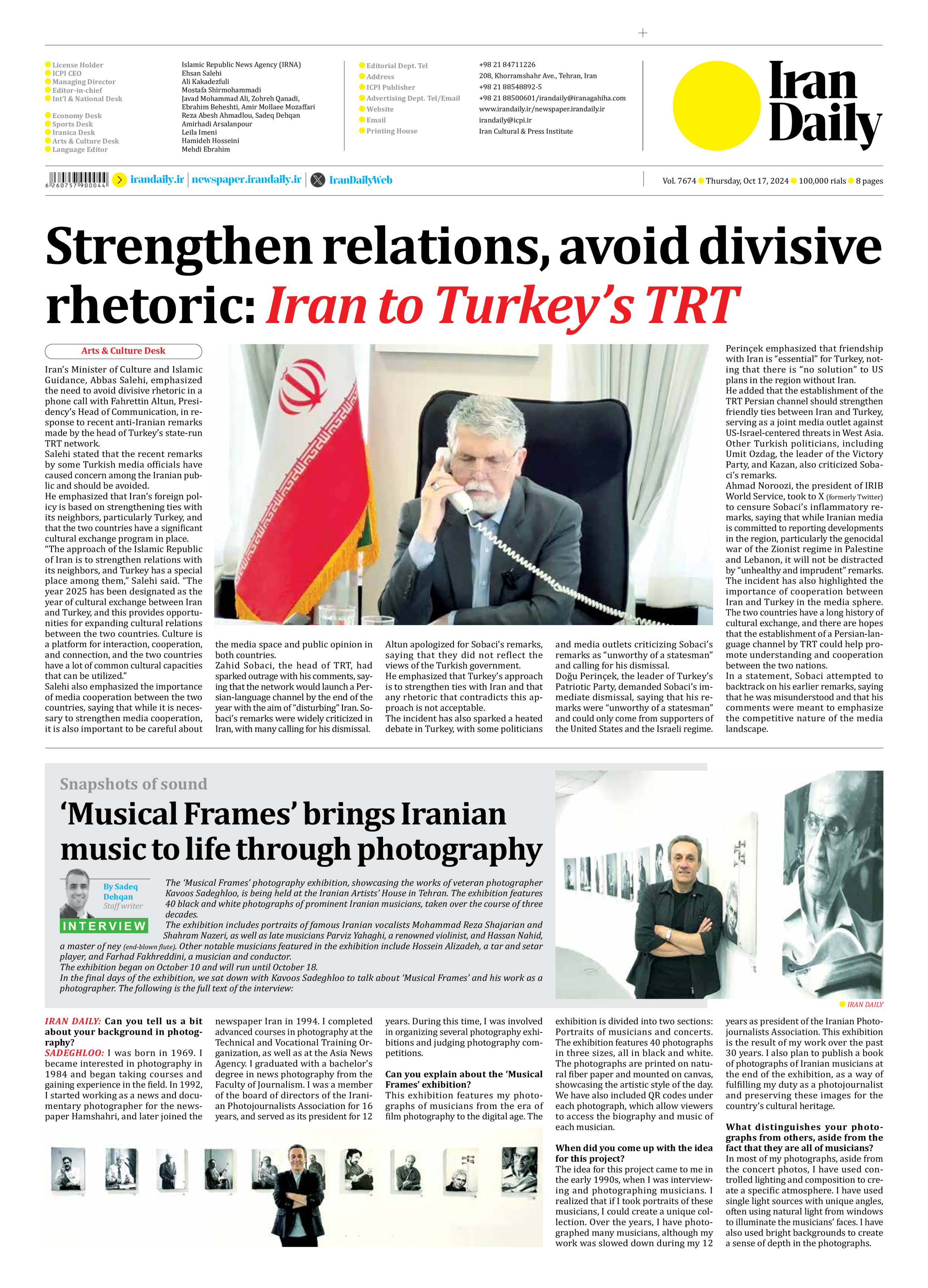
Strengthen relations, avoid divisive rhetoric: Iran to Turkey’s TRT
Iran’s Minister of Culture and Islamic Guidance, Abbas Salehi, emphasized the need to avoid divisive rhetoric in a phone call with Fahrettin Altun, Presidency’s Head of Communication, in response to recent anti-Iranian remarks made by the head of Turkey’s state-run TRT network.
Salehi stated that the recent remarks by some Turkish media officials have caused concern among the Iranian public and should be avoided.
He emphasized that Iran’s foreign policy is based on strengthening ties with its neighbors, particularly Turkey, and that the two countries have a significant cultural exchange program in place.
“The approach of the Islamic Republic of Iran is to strengthen relations with its neighbors, and Turkey has a special place among them,” Salehi said. “The year 2025 has been designated as the year of cultural exchange between Iran and Turkey, and this provides opportunities for expanding cultural relations between the two countries. Culture is a platform for interaction, cooperation, and connection, and the two countries have a lot of common cultural capacities that can be utilized.”
Salehi also emphasized the importance of media cooperation between the two countries, saying that while it is necessary to strengthen media cooperation, it is also important to be careful about the media space and public opinion in both countries.
Zahid Sobaci, the head of TRT, had sparked outrage with his comments, saying that the network would launch a Persian-language channel by the end of the year with the aim of “disturbing” Iran. Sobaci’s remarks were widely criticized in Iran, with many calling for his dismissal.
Altun apologized for Sobaci’s remarks, saying that they did not reflect the views of the Turkish government.
He emphasized that Turkey’s approach is to strengthen ties with Iran and that any rhetoric that contradicts this approach is not acceptable.
The incident has also sparked a heated debate in Turkey, with some politicians and media outlets criticizing Sobaci’s remarks as “unworthy of a statesman” and calling for his dismissal.
Doğu Perinçek, the leader of Turkey’s Patriotic Party, demanded Sobaci’s immediate dismissal, saying that his remarks were “unworthy of a statesman” and could only come from supporters of the United States and the Israeli regime.
Perinçek emphasized that friendship with Iran is “essential” for Turkey, noting that there is “no solution” to US plans in the region without Iran.
He added that the establishment of the TRT Persian channel should strengthen friendly ties between Iran and Turkey, serving as a joint media outlet against US-Israel-centered threats in West Asia.
Other Turkish politicians, including Umit Ozdag, the leader of the Victory Party, and Kazan, also criticized Sobaci’s remarks.
Ahmad Noroozi, the president of IRIB World Service, took to X (formerly Twitter) to censure Sobaci’s inflammatory remarks, saying that while Iranian media is committed to reporting developments in the region, particularly the genocidal war of the Zionist regime in Palestine and Lebanon, it will not be distracted by “unhealthy and imprudent” remarks.
The incident has also highlighted the importance of cooperation between Iran and Turkey in the media sphere. The two countries have a long history of cultural exchange, and there are hopes that the establishment of a Persian-language channel by TRT could help promote understanding and cooperation between the two nations.
In a statement, Sobaci attempted to backtrack on his earlier remarks, saying that he was misunderstood and that his comments were meant to emphasize the competitive nature of the media landscape.







